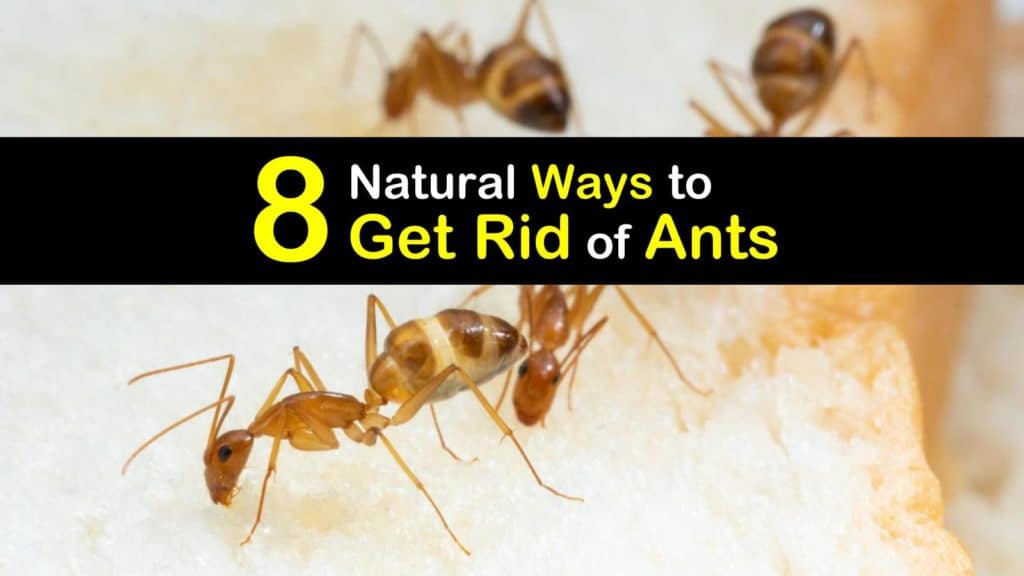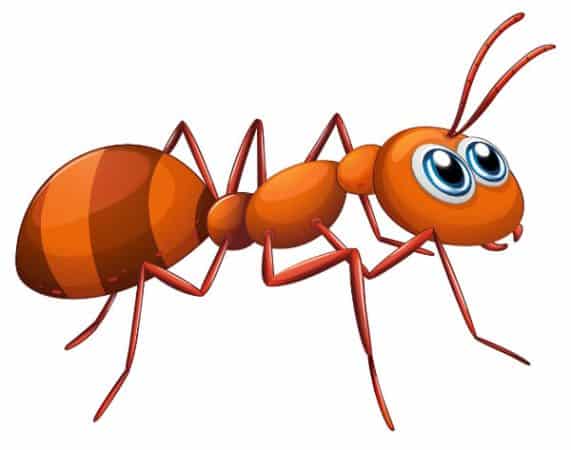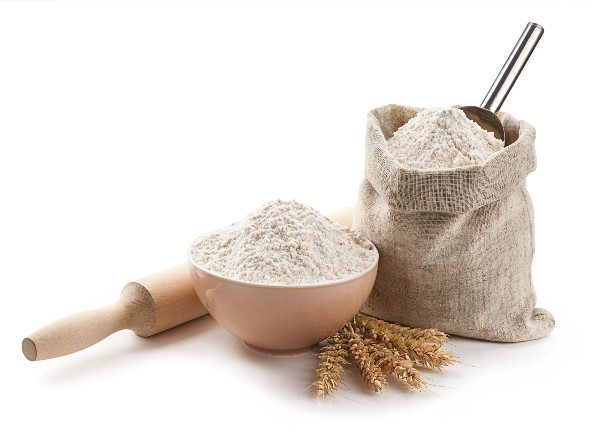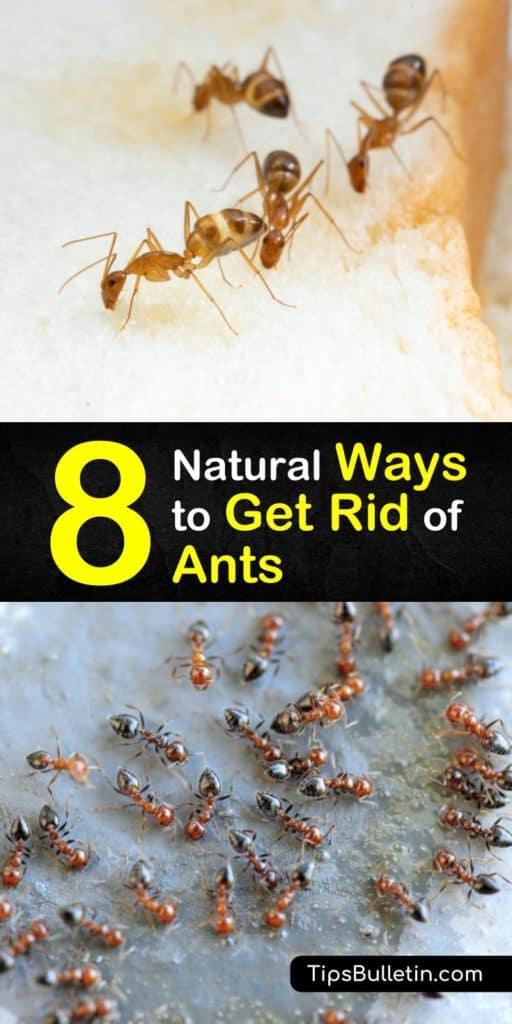Ants: bringing ruination to picnics the world over. They aren’t necessarily harmful, per se, but if they get into your house, they become an unsightly, unsanitary problem that can be difficult to tackle. Left untreated, they can end up infesting your home in a widescale epidemic, leaving you desperate to find out how to get rid of ants.
Because ants are colonial creatures, seeing one ant means there are probably many, many more close by. As soon as you see an ant crawling through your house, you’ll want to take action immediately because it’s likely a “scout” and the first sign of an infestation.
Once you figure out the type of ant, you can find a natural, at-home solution for the problem.

How to Get Rid of Ants in the Kitchen
The best way to keep your ants from infesting your home in the first place is with a heavy dose of prevention. Like any other creature, ants spend most of their time trying to survive. Environments conducive to their survival attract them.
Figure out what they’re looking for, make sure you’re not offering it, and the infestation will happen at your neighbor’s house instead. In most cases, your kitchen will be the place that attracts the most ants.

Here are a few tips for how to prevent ants from infesting your home.
Clean up spills. Ants love sticky, sweet substances so if you spill juice, chocolate, or soda, take care to clean it up well and immediately.
Cover food. Ants go the easy route: why work twice as hard for food when there’s so much food lying around? You want to make it difficult for ants to reach your food because if you do, they’ll look elsewhere. If you’re leaving food out for a prolonged period, take care to cover it.
Seal trash cans. Along the same lines as covering your food, make sure your trash cans are well sealed. If the food is hard to access, ants will find sustenance elsewhere.
Check under appliances for food. Sometimes while you’re preparing dinner, you might drop crumbs which might then roll under appliances. Ants then come along to clean it up. Check (and clean) under appliances.
Monitor your pet’s food bowl. Once Fido is finished eating, wash out his bowl. Leftover pet food and debris can attract ants.
Seal up compost. If you have compost around the house, keep it sealed and covered.

How to Get Rid of Ants
For house ants, you can use one of our favorite natural ways to get rid of ants with a Borax solution. It’s a simple but highly effective method of pest control made with ingredients you probably keep in the pantry and laundry room.
Mix the Borax and sugar and fill small containers, like bottle caps, with the solution. Place them in locations where the ants are entering your home.
If you have pets, use ½ cup sugar, three tablespoons Borax, and one cup of water instead to make a homemade ant killer.
Use this mixture on cotton balls near ant trails to kill them. If you see the ants, do not kill them directly. Instead, let them bring the Borax mixture back to the colony where it will kill the rest of the ants.
How to Get Rid of Carpenter Ants

Carpenter ants like to dig through wood and do not carry their food back to their nest. As a result of their behavior, you’ll have to find the nesting site on your own. Look for locations that are surrounded by sawdust from the tunnels they chew through the wood.
Once you have found the nest, sprinklefood grade diatomaceous earth (DE) on and around the nest. Diatomaceous earth is an organic material with edges that cut through the ant’s body.
If the ant ingests it, the sharp edges will kill it. If you have a large colony of carpenter ants, inject diatomaceous earth directly inside with a medicine dropper.
How to Get Rid of Sugar Ants
No one wants to find sugar ants on the kitchen counter or invading the pantry. These pesky insects need to find their food elsewhere! How to get rid of sugar ants in the kitchen or other areas of the home involvesmopping the floor at least once a day.
Careful mopping and vacuuming help to remove the ants’ pheromone trails. Cleaning and mopping will rid your home of the food and crumbs attract the ants and encourage them to look outside for their food sources.
In the kitchen, clean dishes completely and empty the trash bin regularly to discourage them from being inside.
For deterring sugar ants, sprinkle black pepper around potential entry points to keep them from coming inside. A 1:1 ratio of water and white vinegar can also deter them.
Spray this natural ant spray on countertops (be careful with granite), window sills, corners, and high traffic areas.
Home Remedies for Ants
If you are worried about harmful pesticides or have a lot of pets, there are safe home remedies for ants that can treat an ant invasion. Depending on what you have in your cupboard, you can use make your own natural ant repellent or use one of these techniques.
Vinegar
Ants despise vinegar, meaning you can make an effective and inexpensive ant repellent right in your home. Blend white vinegar and water in a spray bottle. Afterward, spray it anywhere you see insects entering your home and on their nests.
If you have a serious ant problem, you can try using full-strength vinegar to get them to leave.
The vinegar-and-water homemade carpenter ants killer works well as a pesticide as well as a deterrent. Spray it directly onto indoor and outdoor ants to kill them, or spray it at common points of entry to keep them from getting into your house.
Vinegar is also quite effective for deterring or killing other insects like cockroaches and moths, as well.
Chalk or Flour

Have you ever noticed how ants tend to follow the same paths, even if they aren’t following another ant? While ants move around, they deposit pheromones. Other ants follow the scent of these pheromones, which is how they stay organized and find their way back to the nest time after time.
One way you can use pheromone trails to your advantage is with chalk. Chalk is made of calcium carbonate and interferes with an ant’s ability to follow the pheromone trail.
Does Flour Kill Ants?
People often suggest that flour is a means of killing ants. The logic is that the ants eat the flour, which then expands in their stomach and causes them to explode.
You’re better off using flour (or cornmeal) as a form of bait, because ants are attracted to flour, or you can use it as a means of disrupting pheromone trails as described above.
Adhesive Tape
Sometimes the simplest solution is the most effective. If you’re able to identify what the ants find attractive in your home (such as a cookie jar), you can create a “moat” around it with duct tape. Simply lay the tape sticky-side-up, and the ants will stick to it while attempting to cross.
Lemons and Oranges

Citrus fruits, like lemons and oranges, contain a compound called limonene. Limonene repels ants, so citrus fruits are excellent natural repellents. They also work really well to keep spiders away. Use some lemon or orange juice on the windowsills, holes, cracks and door thresholds where ants normally get in.
Then scatter the lemon peels and slices outside entryways. For an even better option, wash your floors with lemon juice of four lemons for every half gallon of water. If you know where the colony is, blend orange peels and water in a blender until smooth and dump directly onto the colony.
Boric Acid
Use boric acids like flour on doorways, cracks, and shelves. Once the ant encounters it, the boric acid will dry out their skin and tear up their exoskeleton. Be careful about using boric acid because it can be toxic when ingested by pets or children.
Bear in mind also that boric acid will only work on certain types of ants, so if you’re using boric acid and experiencing sub-optimal results, it’s possible that the boric acid isn’t having an effect on them and you’ll want to move on to alternative methods. For getting rid of fire ants, you’ll likely need to use another strategy.
Spices and Essential Oils

Many spices and oils found in nature give off scents as a means of warding off potential predators. While they don’t seem like predators, ants can do a lot of damage to plants, which is why these plants are equipped with pungent odors to keep ants (and other creatures) away.
Cayenne pepper, cinnamon, mint, chili pepper, peppermint oil, and black pepper will all work. Most essential oils work also really well to get rid of stink bugs and yellow jackets.
Sprinkle the pepper wherever you see ants, and they’ll scatter. When they scatter, they’ll likely make a beeline for wherever they’re entering your house, so follow them and use more pepper when you find the entrance.
Flowerpots
If you know where the ants have set up their colony, flower pots and hot boiling water can be an effective way of dealing with an ant problem. Place a flower pot upside-down over the top of the ant colony.
Then, pour hot, soapy water through the flower pot’s drain hole. The soap will cling to their bodies and essentially cause them to drown.
The ants that survive abandon the colony and start over elsewhere. If you add some coffee grounds to your flowerpots, it will fertilize your plants and repel ants naturally.
Picnic Solutions

If you have trouble with ants ruining your picnics and barbecues, there are a couple of things you can do to keep the ants at bay.
If you’re having a picnic on a blanket, sprinkle cinnamon on the ground around the blanket (and take care not to set up your picnic directly atop an ant colony). Keep food in plastic containers until you’re ready to eat it.
Otherwise, if you’re having a barbecue and sitting at a table, invest in some plastic containers, fill them with water, and stick the legs into them. Ants are poor swimmers, so they’ll get caught in the pools of water before they have a chance to climb the legs.
If you’d like additional protection, rub cinnamon (or one of the other spices listed above, though you’ll probably want to avoid cayenne in this case) on the legs. Even if the ants make it through the “moats” around the legs, they’ll be unwilling to climb due to the smell of the spice.
Ant-agonize the Ants

You’d prefer to live your life ant-free. You’d be happy if you never saw an ant trotting across your kitchen floor again, or if you could enjoy a picnic without worrying about having to get rid of an ant infestation.
While the techniques provided here won’t rid your life of ants completely, using them means you’ll be limiting how much they can influence your life.
In this article, you learned how to get rid of ants. You learned some home remedies for ants, and you learned a few practical preventative measures you can take to keep ants from taking an interest in your house.

Do you have a friend with ant problems? Use the buttons below to share this guide to Facebook, Twitter, and Pinterest!